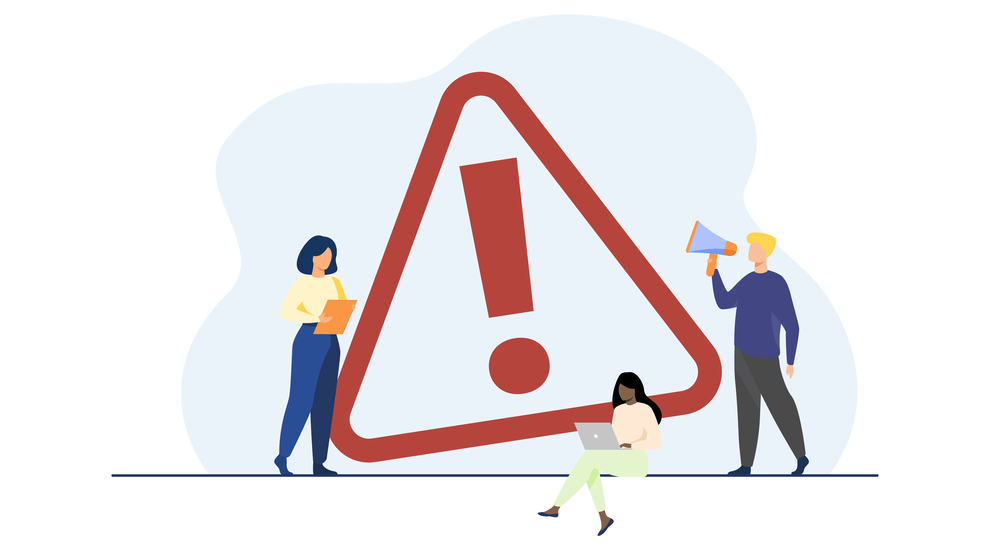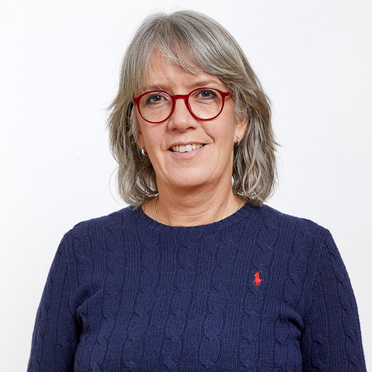If something happens
Here is essential information for those employed at GIH about what applies to different events and crises.

Checklist in the event of a major and severe accident
- Give first aid to the injured
- Alarm 112
- In case of fire - evacuate
- Shut down or disconnect affected equipment or premises
- Appoint an accompanying person in case of a possible sick transport
- Contact the principal or someone from the crisis management group
- Contact the communications manager
- Pick up the list of relatives for staff. It is available in the HR department and at the reception
- Hand over the fire folder found in the reception to the rescue manager or incident leader
Alarm list in the event of a serious incident
- Emergency services: 112
- Property during office hours, contact Vaktmästeriet's mobile 073-593 90 94
- Property emergency number on evenings and weekends, contact Akademiska Hus: 020-55 20 00 (around the clock)
- The police, non-emergency: 114 14
Several defibrillators are deployed at GIH:
- Building 1 – at the reception (available during GIH's opening hours)
- Building 1, floor 2, room 1233b – Åstrand laboratory (access required)
- Building 1, Level 3, Opposite Room 1323b - BMC Laboratory (access required)
- Building 3 – the caretaker's entrance (available during GIH's opening hours)
- Building 3, Floor 2, Room 3238 – LTIV Laboratory (access required)
- The GIH bath (deployed by the City of Stockholm)
If you need a defibrillator outside GIH, you can search for the nearest defibrillator via Sveriges hjärtstartarregister. External link, opens in new window.
External link, opens in new window.
Everyone staying on GIH's premises must know which escape routes are available. Signs with escape routes are placed in corridors and stairwells. GIH must carry out evacuation drills at certain intervals.
Should an accident occur, for example, a fire, explosion, or gas leak, and the premises must be evacuated, this is signaled with an alarm signal.
In case of alarm:
- Leave the building immediately.
- Avoid smoke-filled corridors.
- Go immediately to the assembly area at Wembley, i.e., the pitch outside the sports entrance.
- Do not leave the assembly area until the evacuation leader announces that it is permitted.
- Do not stand in the car park, as the emergency services may need to use it to get there.
An emergency phone is located at the entrance to the building to the sports halls.
GIH is obliged to report all work-related injuries and incidents to the Work Environment Agency and the Social Insurance Agency. Serious injuries or accidents must be reported on the same day without delay.
Serious injury or incident
- Examples of severe damage include broken bones, heavy bleeding, and significant damage to nerves, muscles, or tendons.
- An example of a severe accident could be when an employee fell from a height of two to three meters but did not suffer any injuries. More serious cases of bullying, violation, or harassment are also examples of serious incidents.
Report an accident with a student
The responsible teacher (sub-course or course manager) must:
- Report all injuries in consultation with students and the principal safety representative. Serious injuries or accidents must be reported on the same day without delay. Based on the choice of work injury you make, the form goes to both the Work Environment Agency and the Social Insurance Agency, or only to one of these. Here you can report all damages
 External link, opens in new window..
External link, opens in new window.. - Write a claim with information about what has happened and when. It must be e-mailed to the Education and Research Administrative Department, UFA.
The student must:
- Report the accident or incident to the responsible teacher (sub-course/course manager).
- For possible compensation, the student must e-mail UFA to get help reporting the injury or incident to Kammarkollegiet. They have personal injury insurance for students. It is the Kammarkollegiet that decides whether compensation is paid.
Investigation of the causes of the events
The immediate manager of employees or responsible teacher for students must, in cooperation with the principal safety representative, investigate the causes of the incident and take measures to prevent further accidents, injuries, or incidents from occurring.
Examples of the investigation's content:
- What has happened? When, where, and how did it happen? Why?
- What measures could have prevented the incident? What actions need to be taken immediately?
The principal safety representative forwards the investigation to the Working Environment and Equal Treatment Group, the AML group, which is tasked with following up on injuries and incidents at GIH.
Guidelines for crisis management
GIH's guidelines for crisis management cover all employees and students at GIH and describe how to act in a crisis situation.
A crisis is more significant than what the business is ordinarily prepared for or able to handle. On a personal level, it could be, for example, a traffic accident, illness, or sudden death. A crisis can also affect a larger group or the entire organization, for instance, fire or sabotage.
Read GIH's guidelines for crisis management Pdf, 396.8 kB, opens in new window.
Pdf, 396.8 kB, opens in new window.
Crisis instructions
Detailed instructions for different events:
Deaths while working at or near the school Pdf, 185.9 kB, opens in new window. (page 8)
Pdf, 185.9 kB, opens in new window. (page 8)
Serious personal injury while working at or near the school Pdf, 208.7 kB, opens in new window. (page 9)
Pdf, 208.7 kB, opens in new window. (page 9)
Follow-up routines Pdf, 210.3 kB, opens in new window. (page 10)
Pdf, 210.3 kB, opens in new window. (page 10)
Death or serious personal injury outside of work or during leisure time Pdf, 209 kB. (page 11)
Pdf, 209 kB. (page 11)
Violence, violent behavior, or threats at school Pdf, 209.2 kB, opens in new window. (page 12)
Pdf, 209.2 kB, opens in new window. (page 12)
Fire in the school premises Pdf, 181.2 kB, opens in new window. (pages 13–14)
Pdf, 181.2 kB, opens in new window. (pages 13–14)
Damage where vital supply systems are knocked out Pdf, 208.1 kB, opens in new window. (page 15)
Pdf, 208.1 kB, opens in new window. (page 15)
Extensive damage Pdf, 177.7 kB, opens in new window. (page 16)
Pdf, 177.7 kB, opens in new window. (page 16)
Harmful publication about GIH Pdf, 179.2 kB, opens in new window. (page 17)
Pdf, 179.2 kB, opens in new window. (page 17)
Checklist for measures in the event of a significant and severe accident Pdf, 154.1 kB, opens in new window. (page 18)
Pdf, 154.1 kB, opens in new window. (page 18)
Alarm list – in the event of a severe incident Pdf, 187.1 kB, opens in new window. (page 19)
Pdf, 187.1 kB, opens in new window. (page 19)
GIH's crisis group must always be contacted in the event of more serious incidents.
The crisis group consists of the following:
- Rector, 08-120 53 706
- Head of administration, 08-120 53 704
- The student union president, 08-120 53 888
The phone number below may be helpful to have in case something happens.
- Reception 08-120 53 700
- The sports office or caretaker 08-120 53 794
- Vaktmästeriet mobile 073-593 90 94
- Property manager 073-920 53 74
- Emergency center Akademiska Hus 020-55 20 00
- Securitas 08-657 62 00
Contacts for non-emergency healthcare
In the case of non-emergency medical care, the following employees at GIH are trained and certified:
- Eva Andersson, doctor, 08-120 53 791
- Maria Ekblom, physiotherapist, 08-120 53 740
- Kristjan Oddson, naprapat, 08-120 53 741
You can always call the healthcare information service on 1177 for advice.
On this page

